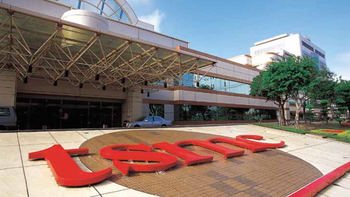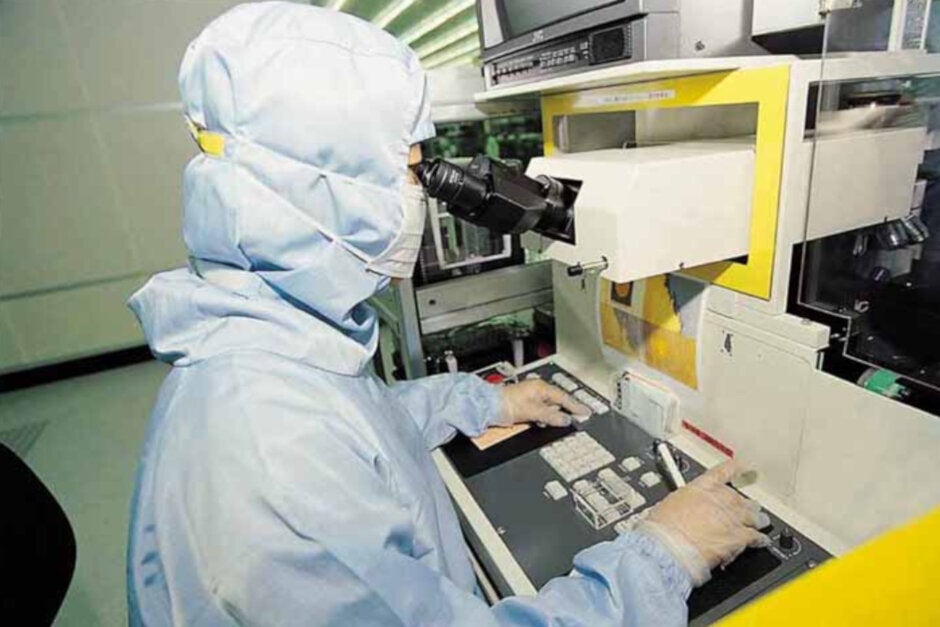This is why what happens today with COVID-19 could delay the Apple iPhone 16 Pro Max 5G

Just a few days ago, we told you that due to the COVID-19 outbreak, Samsung had pushed back its time frame for the volume production of chips made using the 3nm process node. WCCFTech reports that the world's largest independent foundry, TSMC, is also being forced to delay its plans for 3nm chip production due to the same reason. This might not seem like a big deal now, but it could mean that the first phones to be powered by a 3nm chip might not surface until late 2023-2024 at the earliest. So the 5G iPhone 16 or iPhone 17 could either face a delay or be equipped with a chipset not as powerful as it the one it might have had without the pandemic.
Apple orders 10,000 additional 5nm chips for this quarter
Apple, as many of you know, designs its own chips. But when the time comes to actually manufacture them, it doesn't own any fabrication plants; in the lexicon of the chip industry, Apple is "fabless" (not in the same way that the Beatles were the 'Fab Four'). So the tech giant turns to TSMC to produce its chips including the A-series SoCs that power the iPhone. A delay in the manufacture of 3nm chips could hurt Apple down the road. Apple is the foundry's largest customer; other companies that design their own chips but rely on TSMC to make them include Qualcomm and Huawei.

The COVID-19 outbreak is negatively impacting future chipset production
The process node is based on the ever-growing number of transistors that fit into a dense spot, such as a square mm. The more transistors that can be placed inside a chip, the more powerful and energy efficient it is. Back in the 1960s, Intel co-founder Gordon Moore noticed that the transistor density (again, the number of transistors that can squeeze into a square mm) doubles every year. In the 1970s, Moore updated his law, calling for the transistor density to double every other year.
UPDATE: As pointed out by one of our readers, the 10,000 additional chips that Apple has ordered after Huawei's cancellation could refer to chip dies. The original source mentioned 10,000 chips but something might have been lost in translation. It makes more sense to believe that 10,000 chip dies are involved since that could actually be used to produce as many as 6-8 million 5nm A14 Bionic chips.
So where are we now? Most chipsets used to power mobile handsets in 2019-2020 are made using the 7nm process including Apple's A13 Bionic, the Snapdragon 865 Mobile Platform, and the Kirin 990 5G. 5nm chipsets will start rolling out this year and the 5G 2020 Apple iPhone 12 family, powered by the A14 Bionic, could be the first smartphones to be equipped with a 5nm chip. The Huawei Mate 40 series could follow. To illustrate what we are talking about, the A13 Bionic SoC contains 8.5 billion transistors while the A14 Bionic will have 15 billion transistors inside each chipset.
While TSMC might have to push back its 3nm roadmap by six months or more because of COVID-19, its 5nm production is right on schedule. In fact, the other day we learned that Apple increased its order of 5nm A14 Bionic chips by 10,000 units as Huawei canceled production of the same number of 5nm chips. In other words, when it comes to 5nm, TSMC is completely booked up throughout the rest of the year. Luckily, the company, which spent $24 billion on 5nm production, did all of the necessary tooling it needed to finish before the pandemic hit.
5nm will be the first process node that TSMC designed to use extreme ultraviolet lithography (EUV). The foundry's N7 and N7P process nodes used immersion lithography and the N7+ used something similar. EUV saves time by using an ultraviolet beam to more precisely mark up a die more precisely. Since marking up a die indicates the placement of the transistors inside an integrated circuit, the more precisely this is done, the more transistors that can fit inside.
TSMC isn't expected to start production of 3nm chips before 2022. Trial production will take place in TSMC's Fab 18 where two construction phases completed were for 5nm production; the next two will be dedicated to 3nm production.













Things that are NOT allowed: